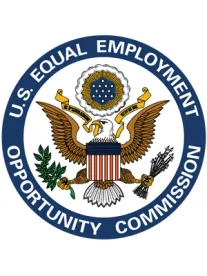According to an opinion from the Equal Employment Opportunity Commission (EEOC) last week, Title VII’s bar on sex discrimination also forbids employment discrimination based on sexual orientation. It is unclear, however, whether courts facing Title VII sexual orientation or gender identity discrimination claims will agree with the EEOC’s conclusion.
Federal Employee Alleged He Was Denied Permanent Position Because He Is Gay
An employee of the Federal Aviation Administration (FAA) filed a complaint alleging that he was denied a permanent position as a Front Line Manager at the Miami Tower TRACON facility because he is gay. He alleged that his supervisor, who was involved in the selection process, had made several negative comments about his sexual orientation, such as “We don’t need to hear about that gay stuff.”
The FAA declined to process the employee’s claim under rules that govern federal employee complaints of Title VII. The employee appealed to the EEOC. This teed up the issue of whether Title VII covers claims of sexual orientation discrimination.
Three Reasons Why Sexual Orientation Already Covered As Sex Discrimination
In its decision, the EEOC details three reasons why it concludes that sexual orientation discrimination is sex discrimination prohibited by Title VII:
-
Sexual orientation discrimination necessarily entails treating a worker less favorably because of that person’s sex. As an example, the EEOC states that if an employer suspends a lesbian employee for having a picture of her female spouse on her desk but does not suspend a male employee for displaying a photo of his female spouse, the employer took an adverse action against the lesbian employee that it would not have taken if she were male.
-
Sexual orientation discrimination is associational discrimination on the basis of sex. The EEOC views sexual orientation discrimination as treating a worker differently for associating with a person of the same sex. It opines that if associating with a person of a different race, such as an interracial marriage or a biracial child, constitutes race discrimination, as numerous courts have ruled, then discrimination based on associating with a person of the same sex constitutes sex discrimination.
-
Sexual orientation discrimination involves discrimination based on gender stereotypes. In its 1989 Price Waterhouse v. Hopkins decision, the U.S. Supreme Court ruled that Title VII prohibited an employer from discriminating against a female employee who the employer deemed was not “feminine enough” and did not conform to the female stereotype. Pointing to numerous court cases from the past decade, the EEOC stated that discrimination against LGBT employees based on gender stereotypes constitutes prohibited sex discrimination under Title VII.
No New Protected Class Needed
The EEOC acknowledges that Title VII does not specifically prohibit employment discrimination based on sexual orientation. It doesn’t have to, says the EEOC.
The EEOC asserts that interpreting Title VII as not covering sexual orientation as part of prohibited sex discrimination would insert a limitation into the text of Title VII that Congress had not included. It suggests that nothing in the text of Title VII supports the conclusion that Congress intended to “confine the benefits of [the] statute to heterosexual employees alone.” Instead, the EEOC states that even if Congress did not envision the application of Title VII to protect LGBT employees, the interpretation of the law should not be limited only to what Congress had in mind when it passed the law in 1964.
To dispel claims that the EEOC’s interpretation creates a new class of covered persons, the EEOC points to other expanded interpretations of Title VII which did not result in a new protected category. For example, when courts held that Title VII protected employees based on their association with persons of a different race, it did not create a new protected class of “people in interracial relationships.” Similarly, when the Ninth Circuit ruled that religious discrimination under Title VII extended to protect an employee who lacked religious beliefs, no new class of “non-believers” was created. Instead, the EEOC asserts that “courts have gone where the principles of Title VII have directed.”
What Does This Mean?
Sexual orientation and/or gender identity discrimination is already prohibited by law in many states and municipalities. In addition, federal contractors are prohibited from discriminating on those bases as well. If your organization is a federal contractor or is covered by a state or local law prohibiting employment discrimination on those grounds, you should already have updated your equal employment opportunity policies and practices to prohibit harassment, discrimination and retaliation based on sexual orientation and gender identity.
If your organization is not covered by those laws, but is subject to Title VII (which covers employers with 15 or more employees), consider whether to adopt the EEOC’s position. The courts may interpret Title VII differently and ultimately may reject the EEOC’s inclusion of sexual orientation as a form of sex discrimination.
Indeed, for many years, as advocates of the right to same-sex marriage pressed their cases in courts, many courts rejected the argument that discrimination based on sexual orientation was a form of discrimination based on sex. However, as the EEOC observes in its opinion, many courts that have taken up this question more recently have been willing to conclude that discrimination based on sexual orientation is a form of sex discrimination. The EEOC points to both the Ninth Circuit’s landmark Perry decision and the U.S. Supreme Court’s recent same-sex marriage decision in Obergefell as signaling that courts are ready for this interpretation.
While it may take some time for the federal appellate courts to provide more definitive rulings, be aware that the EEOC will pursue claims on behalf of, or in support of, allegedly aggrieved LGBT employees and applicants. You’ll need to weigh your risk tolerance to determine how to respond. We will keep you posted on further developments.


 />i
/>i

